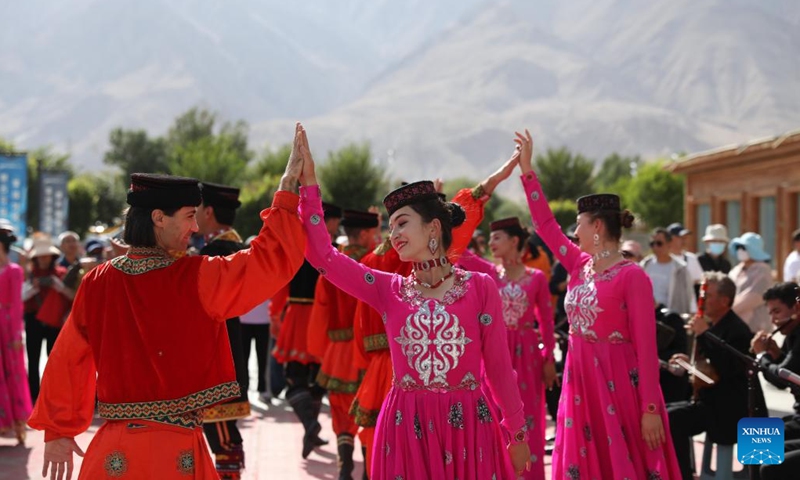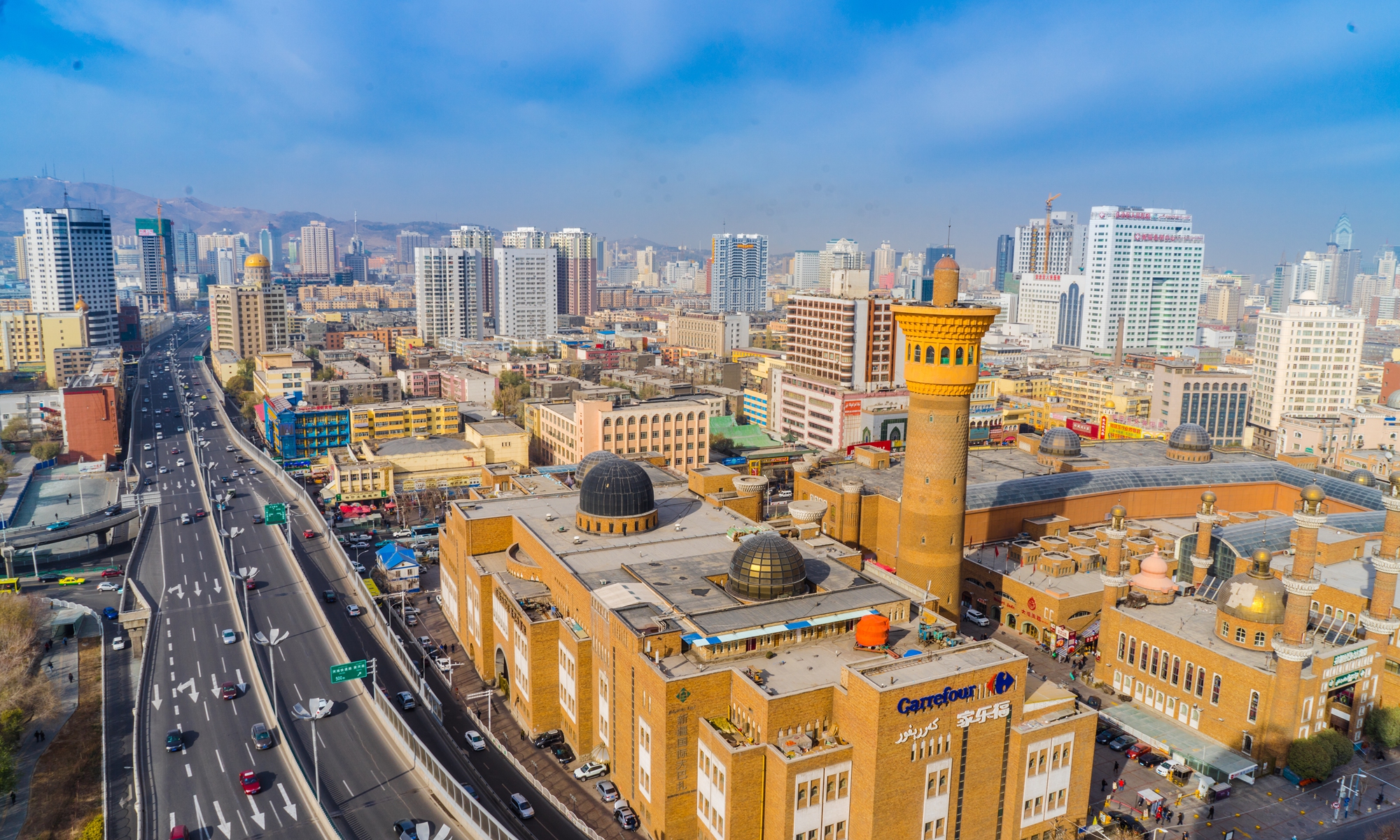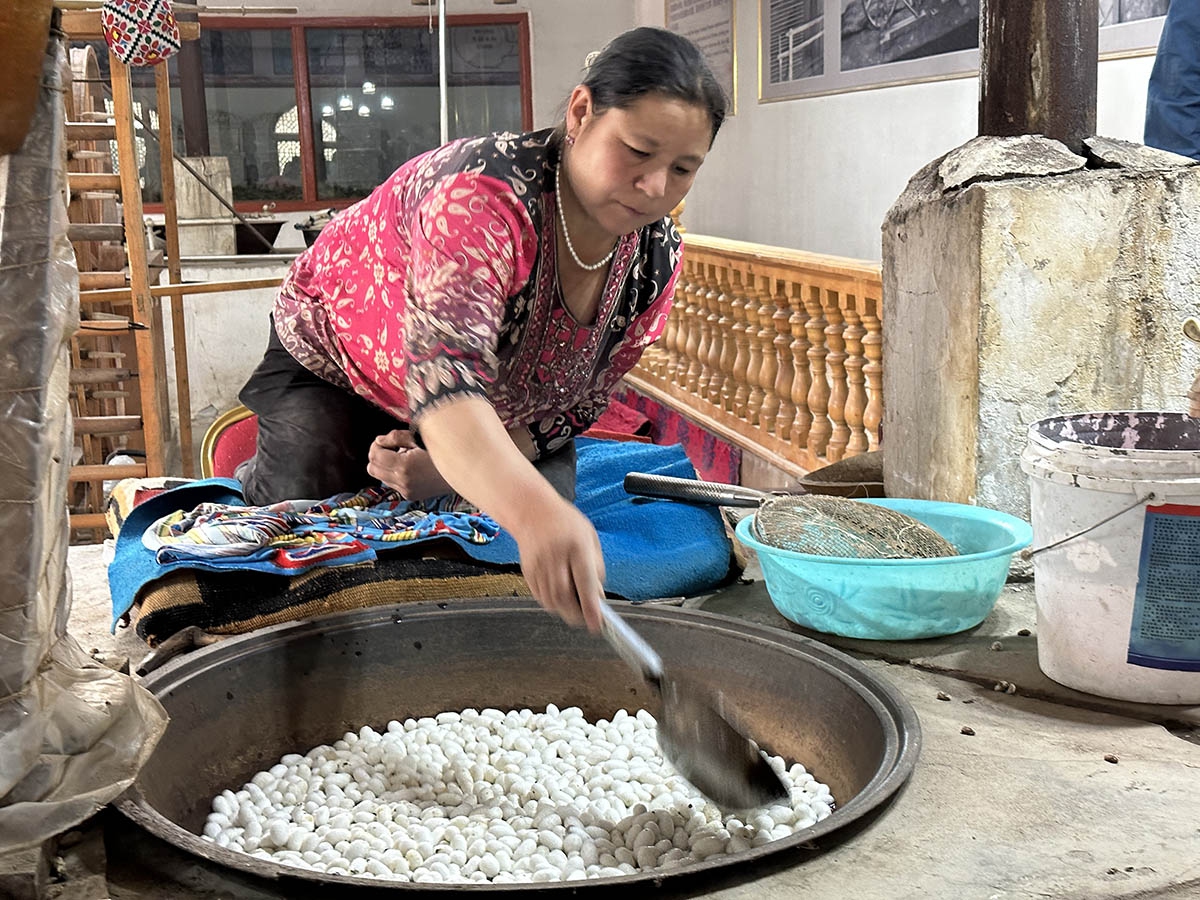
A local villager Yujila Umar cooks cocoons on a stove in an Atlas silk company in Jiya township in Hotan city, Northwest China's Xinjiang Uygur Autonomous Region on September 5, 2023. Photo: Tu Lei/GT
The Atlas silk, a fabric from Northwest China's Xinjiang Uygur Autonomous Region that dates back over 1,000 years, is returning as an important tool in helping locals earn more incomes.
"The Atlas silk was only sold in physical stores in the past and now we are starting to make live-streaming through major short video platforms to expand its sales," Buzuohra Matrozi, a guide for an Atlas silk company in Jiya township in Hotan city, Xinjiang, told the Global Times on Tuesday.
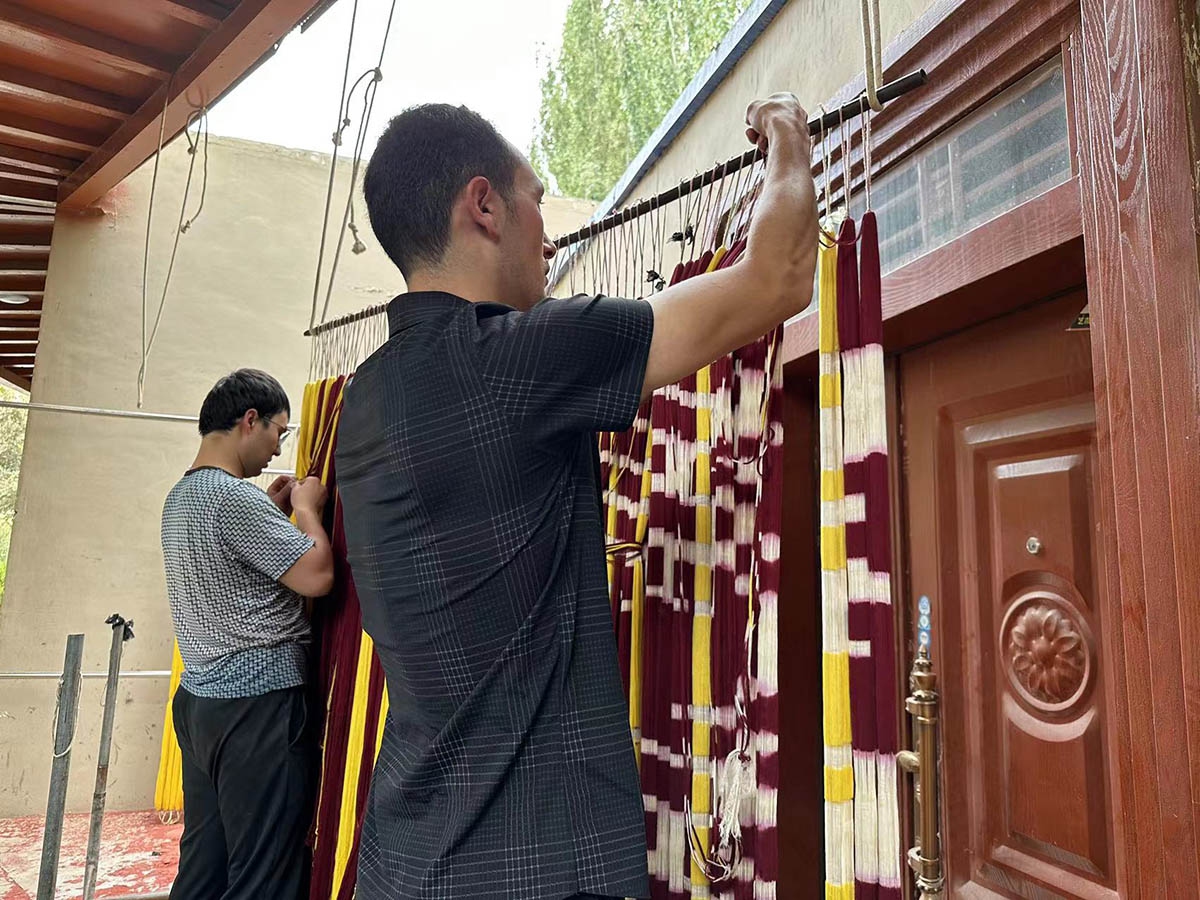
Workers make Atlas silk in an Atlas silk company in Jiya township in Hotan city, Northwest China's Xinjiang Uygur Autonomous Region on September 5, 2023. Photo: Tu Lei/GT
Dyeing and weaving workers are also designing new colors and patterns to support a wider range of products such as clothing, scarves, shoes and hats, men's ties and wallets, Matrozi added.
Atlas silk is soft in texture and bright in color. It is traditionally dyed with natural elements such as walnut bark and saffron with the patterns including peacock feathers and leaves.
In a spinning workshop located at the company, local villager Yujila Umar is cooking cocoons on a stove. Fifteen minutes later, the silkworm cocoons are stirred with a wooden stick, and the raw silk fibers are twisted into strands.
Umar has been working in the company for over four years and takes home a monthly salary of 3,000 yuan ($409.69).
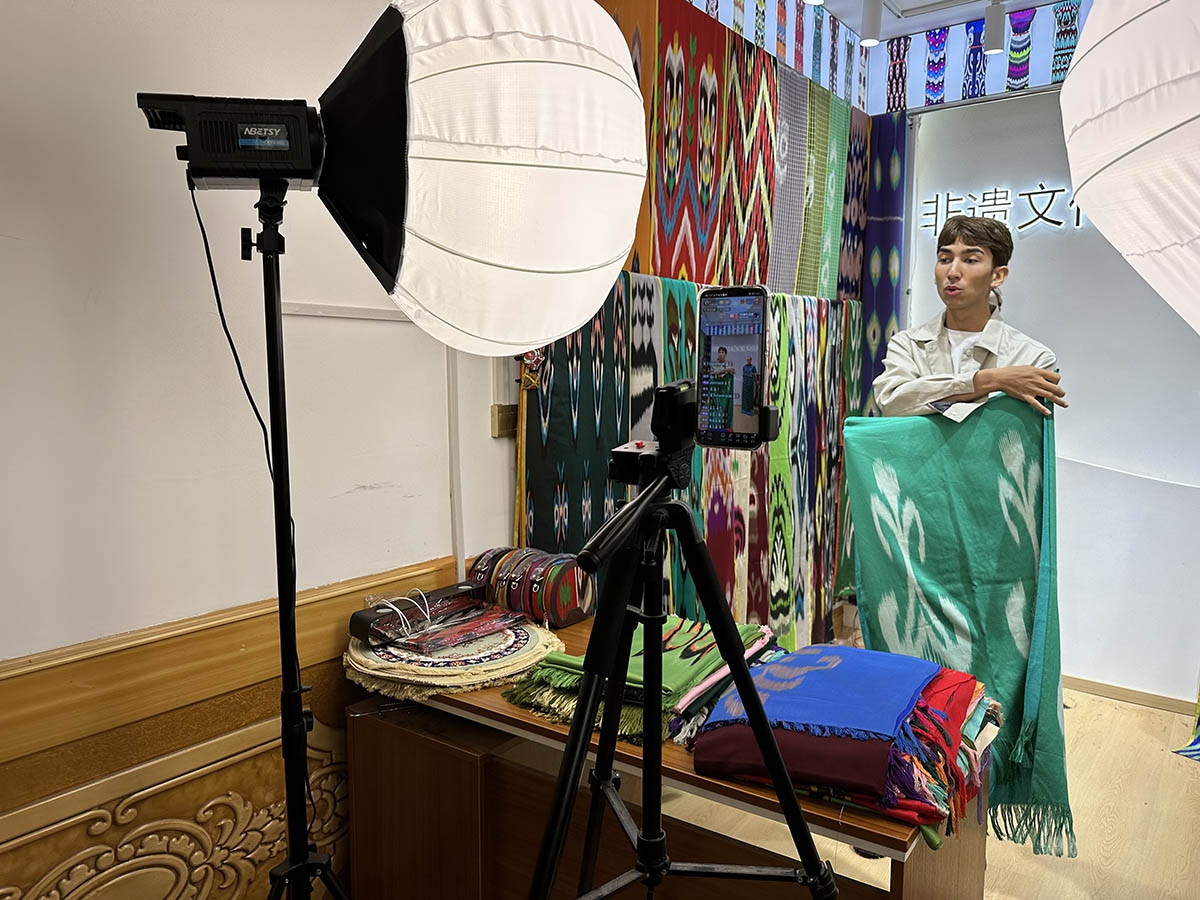
A young Uygur man runs a live-streaming session for Atlas silk in a company in Jiya township in Hotan city, Northwest China's Xinjiang Uygur Autonomous Region on September 5, 2023. Photo: Tu Lei/GT
In the past, getting employed was a major problem for villagers due to limited access to skilled workers. Now, under the guidance of the local government, the production of Atlas silk is becoming a new option for local people to grow their incomes.
Arzigvl Ablat, vice head of Jiya township, said that the making Atlas silk has become one of the major industries in the area.
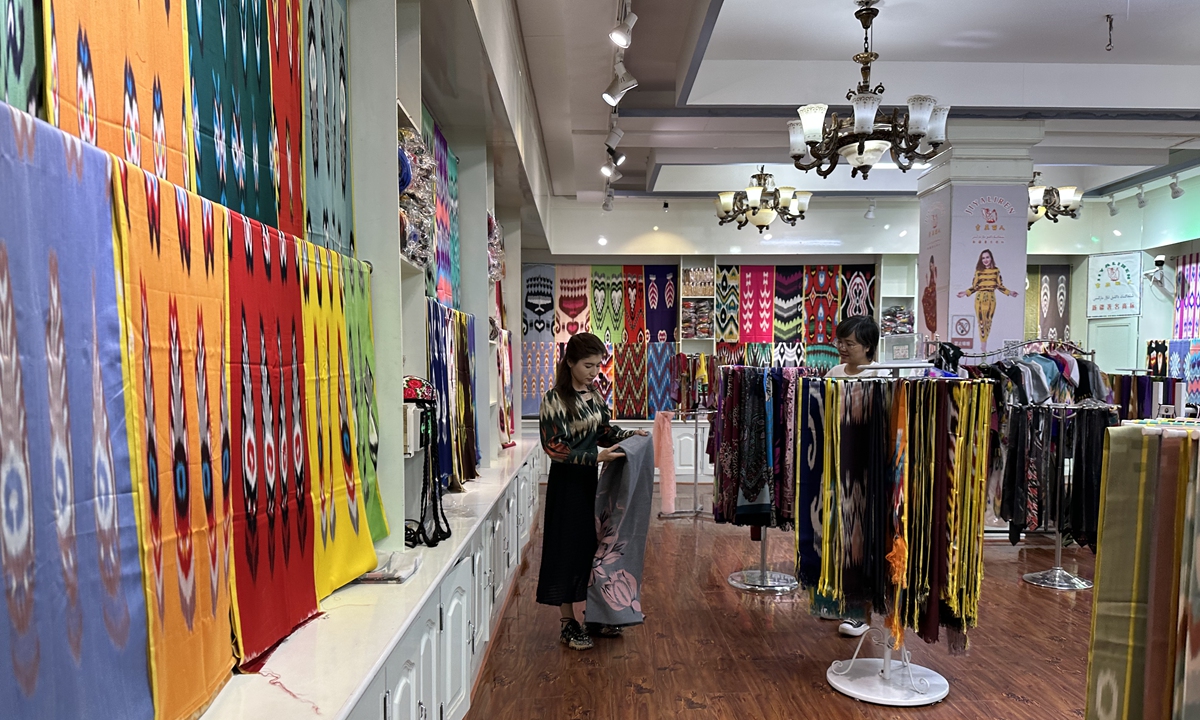
The Atlas silk exhibition hall in an Atlas silk company in Jiya township in Hotan city, Northwest China's Xinjiang Uygur Autonomous Region on September 5, 2023 Photo: Tu Lei/GT
At present, there are seven Atlas silk factories and four cooperatives in Jiya township, with 668 family-style silk weaving households and 765 looms. The annual output value already exceeds 30 million yuan, Ablat said.

